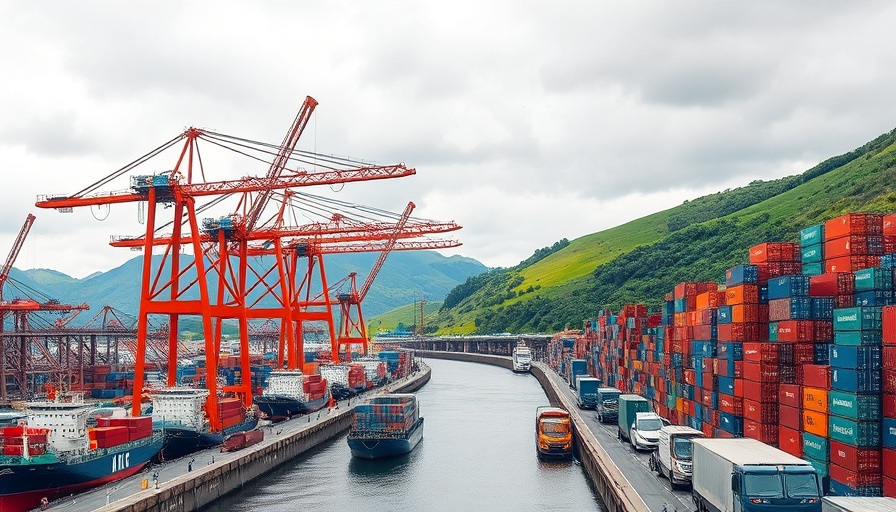
Panama Takes Bold Steps Against International Sanctions
In a significant move signaling its commitment to international maritime regulations, Panama’s maritime authority announced the cancellation of registrations for 107 vessels that were flagged under the Panamanian flag and featured prominently on international sanctions lists. This decision underscores Panama's effort to enhance its international reputation amidst ongoing scrutiny over its maritime practices.
Understanding the Context of Sanctions
Sanctions typically target nations, individuals, or entities engaged in illegal activities, such as terrorism financing or organized crime. The decision by Panama, which operates one of the largest shipping registries globally, highlights the delicate balance countries must maintain when navigating economic dependencies and international law. By taking this decisive action, Panama is positioning itself as a serious player in enforcing maritime laws and adds pressure on other nations with similar vessels.
The Implications for Global Trade
This cancellation could have far-reaching implications for global trade, particularly in maritime transport. Vessels that are registered in Panama often seek the advantages of reduced taxes and simplified regulations. With the removal of these flagged vessels from its registry, Panama may be attempting to clean up its maritime registry in the eyes of the international community and create a more transparent environment for shipping.
Reactions from the Maritime Industry
The maritime industry has begun reacting to Panama's decisive action. Experts suggest this could encourage regulatory bodies worldwide to push for increased compliance measures among shipping companies. Companies that have been relying on flags of convenience for regulatory loopholes might need to reconsider their strategies. As the ripple effects unfold, it remains to be seen how this will affect operational costs in the shipping sector.
The Road Ahead for Panama
With this cancellation, Panama is not only protecting its own interests; it is also enhancing its global reputation. The maritime administration stated that an additional 18 vessels are in the process of cancellation—that number could climb if further investigations reveal more vessels connected to illegal activities. The ongoing commitment to reform could attract ethical investors looking for compliance in international trade.
Historical Perspectives on Panama's Maritime Laws
The history of Panama’s registry has often come under critique for allowing vessels to operate with minimal oversight. This latest action is positioned as a pivot toward increased compliance, reflecting a broader trend in global shipping towards accountability. Historical precedents reveal that significant reforms often stem from reactive measures that later lead to improved practices.
The Broad Effect on Investment Strategies
Investors need to be aware of how these sanctions and regulatory changes can impact their portfolios, especially those invested in shipping stocks or related industries. Such decisions might affect stock values related to shipping and logistics, and understanding these dynamics can aid in better asset allocation strategies moving forward. By prioritizing investment opportunities tied to ethical practices, investors can align their portfolios with a sustainable future.
 Add Row
Add Row  Add
Add 



Write A Comment